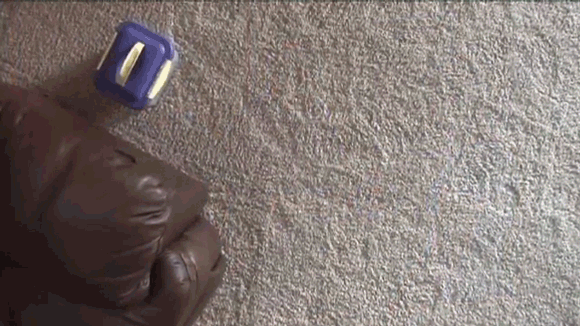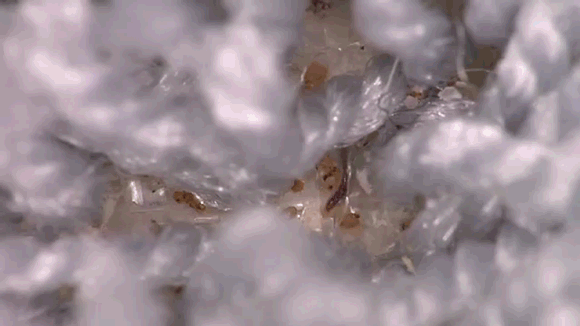
Img 1 Cat flea larvae are most frequently found indoors and hiding deep within home carpeting.
Summary
Most flea larvae are hidden deep within carpets. They’re also commonly found in crevices of hardwood floors. Other locations where flea larvae may hide include rugs, pet beds, folds of cushions, beneath furniture, and in dirt-floor basements.
Details
Flea Larvae Habitats
Cat flea larvae develop in protected microenvironments which are warm, moist, and contain an abundance of food. The larvae are big enough to be visible to the naked eye. However, they’re rarely seen.
Larvae are often hidden from view due to being negatively phototactic and positively geotactic. This means they’ll actively orient themselves away from sources of light, and downwards towards the influence of gravity.
Indoors
Indoors, the majority of flea larvae live deep within carpet fibers. The carpet canopy protects larvae from chemical, mechanical, and environmental hazards. In addition, modern carpeting has a deep pile which readily collects and traps dirt. This provides the larvae with an abundant source of food to graze on.
Flea larvae also commonly develop in cracks of hardwood floors and crevices around baseboards. Other locations where they may hide include area rugs, pet bedding, folds of upholstered seating, under furniture, and in dirt-floor basements.
Outdoors
Outdoors, flea larvae live in shady, moist areas where pets spend a lot of time. They can only survive in locations where relative humidity exceeds 45%, even during the hottest parts of the day. To avoid desiccating, the larvae will hide beneath dense mats of ground cover.
Flea larvae will bury under organic debris such as soil, grass, leaves, or branches. Larval activity occurs in the upper few millimeters of soil. Other locations to find larvae in yards include dog houses, pet shelters, flower beds, crawl spaces, under porches, and in feral animal nests.





You must log in to post a comment. Log in now.